Navigating Security Deposits: How to Protect Your Wallet When Renting in Cap Cana
Understanding Security Deposits in Cap Cana

Navigating Security Deposits: How to Protect Your Wallet When Renting in Cap Cana
Security deposits play a crucial role in rental agreements, acting as a financial safeguard for both tenants and landlords. Understanding the nuances of security deposits in Cap Cana can protect your wallet and ensure a smooth rental experience.
1. What is a Security Deposit?
A security deposit is an amount of money that a tenant pays to a landlord before moving into a rental property. This deposit serves as a financial guarantee for the landlord against any potential damages to the property or unpaid rent. In Cap Cana, as in many other places, the security deposit is typically equivalent to one month’s rent, although this can vary depending on the agreement and the landlord’s policies.
The purpose of the security deposit is multifaceted. Primarily, it acts as a cushion for landlords, ensuring that they have funds available to cover repairs or cleaning costs after a tenant vacates the property. Additionally, it provides a financial incentive for tenants to maintain the property in good condition, knowing that neglect or damage could lead to deductions from their deposit. For renters, understanding the specifics of what a security deposit covers can help prevent misunderstandings and ensure a fair return of their funds at the end of the lease.
2. Legal Requirements in Cap Cana
Renting in Cap Cana involves adhering to specific local regulations concerning security deposits. The Dominican Republic’s rental laws provide a framework to protect both tenants and landlords, though the specifics can vary slightly in Cap Cana due to its unique community standards.
Tenants should be aware that landlords are required to provide a receipt of the security deposit and outline the conditions under which it will be returned. Moreover, there are often stipulations regarding the timeline for returning the deposit after a lease ends, usually within 30 days, barring any deductions for legitimate damages or unpaid rent. Keeping abreast of these regulations empowers tenants to assert their rights and ensures they are not taken advantage of.
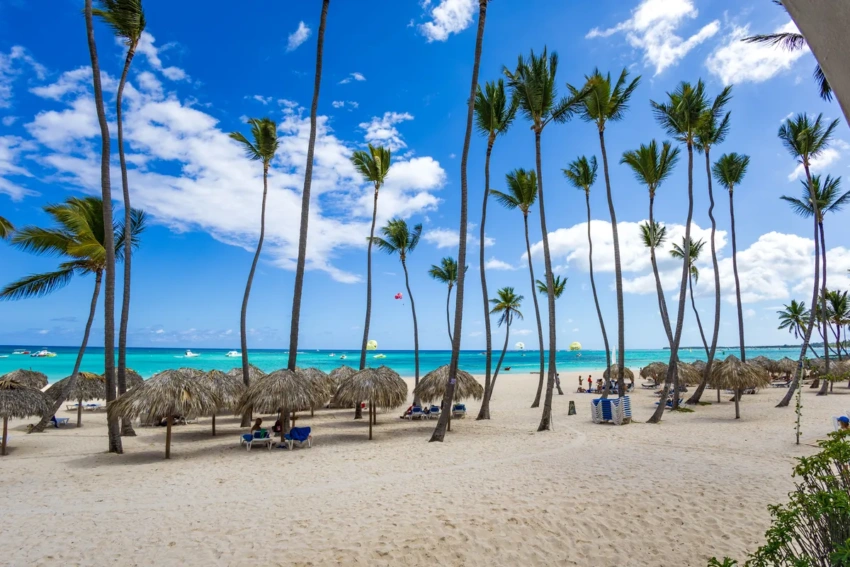
Punta Cana
3. Common Practices Among Landlords
Landlord expectations and practices around security deposits in Cap Cana can vary, but there are some common themes. Typically, landlords expect the deposit to be paid upfront, along with the first month’s rent. They may also conduct a thorough inspection of the property before the tenant moves in, documenting its condition to compare with the state of the property upon move-out.
Understanding these practices can help renters prepare adequately and negotiate terms more effectively. For instance, tenants might request a joint walkthrough of the property with the landlord to ensure that any pre-existing issues are documented. This proactive approach not only builds a positive landlord-tenant relationship but also minimizes disputes when it’s time to reclaim the deposit.
Comparison of Security Deposit Practices
| Aspect | Common Practice | Tenant Tip |
|---|---|---|
| Amount | Typically one month’s rent | Negotiate if possible, especially for longer leases |
| Inspection | Conducted before and after tenancy | Document everything with photos and notes |
| Return Time | Within 30 days of lease end | Follow up promptly if delayed |
| Documentation | Receipt and conditions provided | Keep all paperwork and receipts |
By understanding security deposits and the associated practices in Cap Cana, tenants can better protect their financial interests and ensure a hassle-free rental experience.
Preparing for Your Rental Agreement
Embarking on the journey of renting a property in Cap Cana requires due diligence and strategic preparation. By understanding the market, negotiating effectively, and comprehending lease terms, renters can safeguard their financial interests.
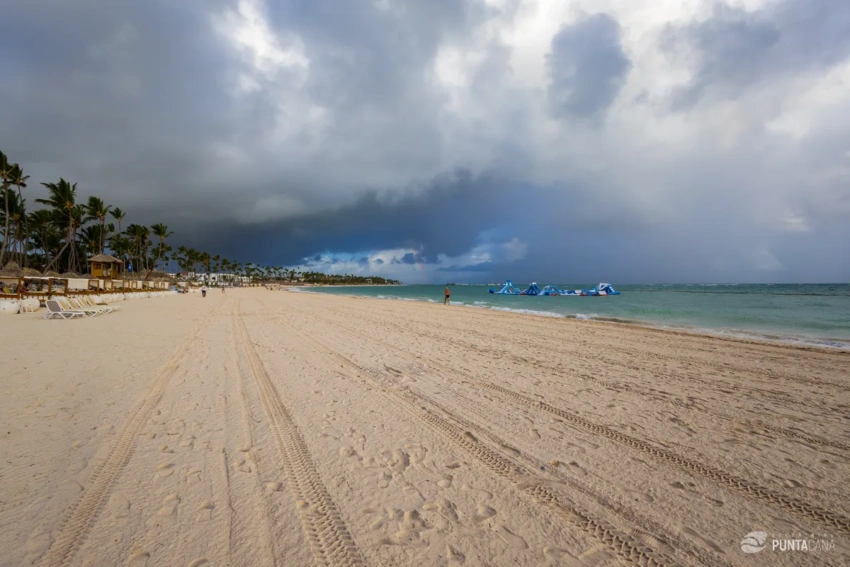
Punta Cana
1. Researching the Market
The first step in preparing for a rental agreement in Cap Cana is to conduct thorough market research. This involves analyzing the current rental landscape to ensure you make informed decisions about where and what to rent.
Start by exploring different neighborhoods in Cap Cana to understand the varying rental prices and amenities each offers. Online platforms and local real estate agents can provide valuable insights into the market dynamics. Look for trends in rental prices and availability to estimate a reasonable security deposit range for your preferred property type.
It’s crucial to compare multiple properties to assess the true value of your potential rental. Consider factors such as location, property size, and included amenities when comparing deposits. This research not only helps you identify the going rate for security deposits but also prepares you for potential negotiations with landlords.
Comparison of Average Rental Prices in Cap Cana
| Neighborhood | Average Rental Price (USD) | Average Security Deposit (USD) | Key Features |
|---|---|---|---|
| Marina Cap Cana | $2,500 | $5,000 | Luxury waterfront, close to amenities |
| Los Establos | $1,800 | $3,600 | Equestrian community, serene environment |
| Green Village | $1,200 | $2,400 | Eco-friendly, family-oriented |
2. Negotiating Your Deposit
Negotiation is a skill that can significantly impact the terms of your rental agreement, especially concerning the security deposit. While landlords in Cap Cana might have standard deposit requirements, many are open to negotiations under the right circumstances.
To negotiate effectively, be prepared to present your case convincingly. Highlight your reliability as a tenant by providing references from previous landlords or showcasing a strong credit history. Demonstrating your commitment to maintaining the property can also convince landlords to lower the deposit.
Consider proposing alternative solutions such as paying a portion of the deposit upfront and the balance over the first few months of the lease. This approach can ease the financial burden initially and make you more attractive as a prospective tenant. Remember, negotiation is about finding a mutually beneficial arrangement, so be open to compromises that align with your financial situation.
Our Best Villa Rentals in Cap Cana
Discover exceptional villa rentals in Cap Cana that cater to every lifestyle and budget. Explore our curated selection of properties, each offering unique features and flexible deposit arrangements.

Villa Agapi (Caleton Estates 57) - The Most Beautiful Ocean View Villa in Cap Cana
from $2850 night Read more
Exclusive Ocean View 5-Star Cap Cana Villa for Rent - Chef, Butler, Maid & Golf Cart
from $4600 night Read more
Private Villa at Puntacana Resort & Club for Rent - Pool, Jacuzzi, BBQ, Maid, Cinema Room
from $1569 night Read more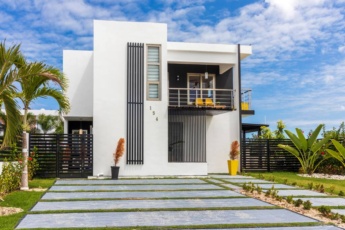
Modern & Stylish 4-BR Family-Friendly Villa Rental in a Quiet and Gated Community in Bávaro, Punta Cana
from $189 night Read more3. Understanding Your Lease Terms
Thoroughly understanding your lease terms is crucial to protecting your security deposit and ensuring a smooth rental experience. The lease agreement outlines the rights and responsibilities of both the tenant and the landlord, providing a framework for the rental relationship.
Pay special attention to clauses related to the security deposit, such as conditions for its return, deductions that may apply, and timelines for reimbursement. It’s essential to clarify any ambiguous terms and seek legal advice if necessary. This transparency helps avoid disputes later on and ensures you know exactly what is required to reclaim your deposit at the end of the lease.
Additionally, ensure that any verbal agreements with the landlord are documented in the lease. This includes promises about property repairs or upgrades. Having a clear understanding of your lease terms empowers you to uphold your rights and fulfill your obligations as a tenant, ultimately safeguarding your financial interests in Cap Cana.
Safeguarding Your Security Deposit
Ensuring the safety of your security deposit is pivotal in providing peace of mind during your tenancy in Cap Cana. By taking proactive steps, you can minimize risks and safeguard your financial interests.
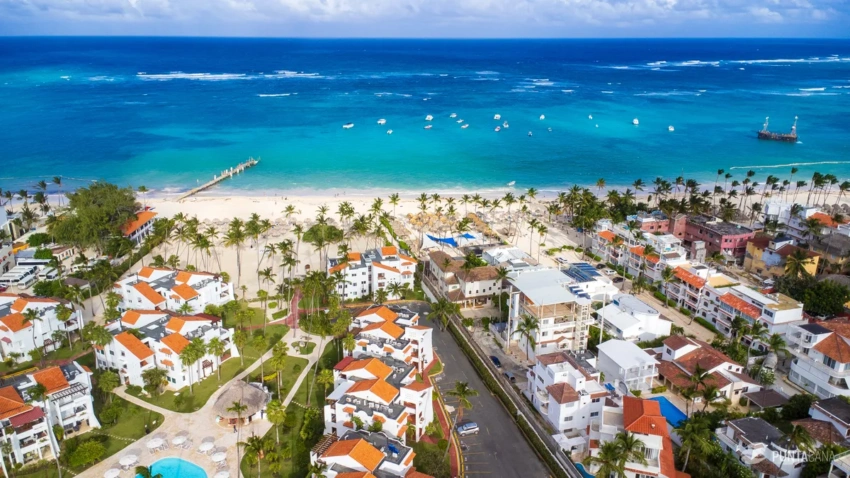
Punta Cana
1. Documenting Property Condition
Documenting the property’s condition before moving in is one of the fundamental steps in protecting your deposit. This involves a thorough inspection of the property, noting any existing damages or issues, and ensuring that these are recorded and acknowledged by both you and the landlord.
- Conduct a Walkthrough: Before signing the lease, conduct a detailed walkthrough with the landlord. Take photos or videos of every room, focusing on areas with visible wear and tear, and make sure these visuals are date-stamped.
- Create a Checklist: Use a checklist to note any defects or maintenance issues, such as chipped paint, broken fixtures, or malfunctioning appliances. This checklist should be signed by both parties and attached to the rental agreement.
- Request a Written Agreement: Ensure that the landlord acknowledges any pre-existing conditions in writing. This can be incorporated into the lease as an addendum.
The importance of documenting cannot be overstated, as this serves as your primary defense in case of any disputes regarding the condition of the property at the end of your lease term.
2. Maintaining the Property
Maintaining the rental property in good condition is critical for ensuring the return of your security deposit. By taking care of the property, you demonstrate responsibility and minimize the likelihood of deductions from your deposit.
- Regular Cleaning: Consistent cleaning prevents long-term damage and keeps the property in optimal condition. Pay special attention to high-traffic areas like kitchens and bathrooms.
- Address Minor Repairs Promptly: Fix minor issues as they arise. For example, replace light bulbs, tighten loose screws, and unclog drains promptly to avoid further damage.
- Follow Lease Terms: Adhere to the lease terms, particularly concerning property modifications or pet policies, to avoid penalties or additional cleaning fees.
By maintaining the property, you not only ensure a pleasant living environment but also enhance the likelihood of receiving your full deposit back.
3. Effective Communication with Landlords
Open communication with your landlord is crucial in safeguarding your security deposit. Establishing a good rapport can prevent misunderstandings and facilitate a smoother resolution of any issues that may arise.
- Regular Updates: Keep your landlord informed about any maintenance needs or repairs. Prompt communication ensures that issues are addressed quickly and prevents further damage.
- Document Interactions: Maintain a record of all communications with your landlord, including emails and text messages. This documentation can serve as evidence in case of disputes.
- Negotiate Flexibly: If you anticipate difficulties in maintaining the property due to unforeseen circumstances, discuss possible solutions with your landlord. A compromise can often prevent conflicts.
By documenting the property’s condition, maintaining it diligently, and communicating effectively with your landlord, you can protect your security deposit and ensure a hassle-free rental experience in Cap Cana.
Handling Deposit Disputes
As a renter in Cap Cana, understanding how to manage disputes regarding your security deposit is vital. These disputes can be complex and emotionally charged, but being informed and prepared can make a significant difference.
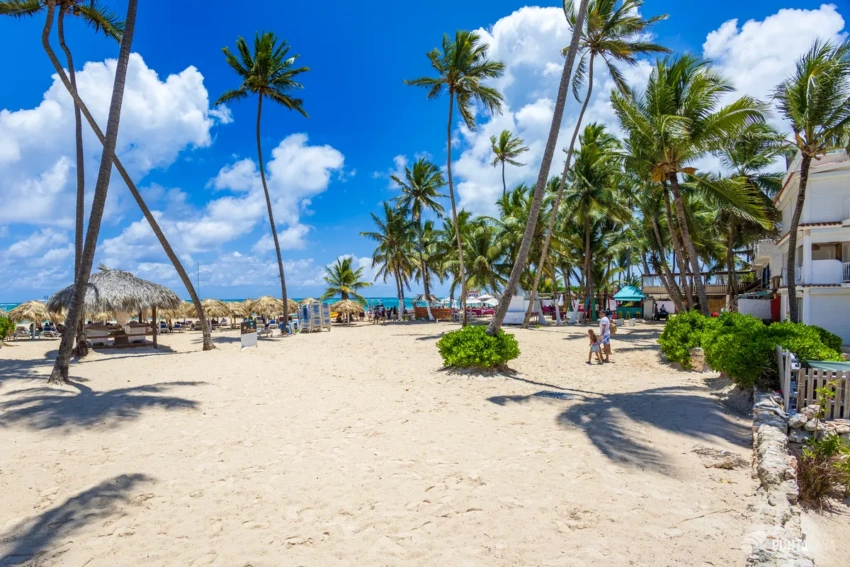
Punta Cana
1. Common Disputes and How to Avoid Them
Security deposit disputes often arise from misunderstandings or disagreements about property condition or contract terms. Common disputes include disagreements over damages, cleaning fees, or unpaid rent. To proactively avoid these conflicts, consider the following:
- Thoroughly Document the Property: Before moving in, conduct a detailed inspection with your landlord and take photographs of any existing damage.
- Clear Communication: Ensure all terms related to your deposit are clearly outlined in your lease and discussed with the landlord.
- Regular Maintenance: Address maintenance issues promptly to prevent further damage, which could affect your deposit return.
Implementing these strategies can help mitigate the risk of disputes, fostering a positive landlord-tenant relationship.
2. Legal Recourse and Mediation
If a dispute arises that cannot be resolved through direct communication, knowing your legal rights and options is crucial. The Dominican Republic, including Cap Cana, has legal avenues and mediation services available for renters.
When direct negotiation fails, consider these steps:
- Review Local Laws: Familiarize yourself with local rental laws regarding security deposits to understand your rights.
- Seek Mediation: Engage a neutral third party to facilitate a resolution. Mediation can often resolve disputes amicably without the need for litigation.
- Consult Legal Assistance: If mediation fails, consulting with a lawyer specializing in property rental disputes can provide guidance and representation.
Knowing these options empowers you to handle disputes confidently and ensures you are not taken advantage of.
3. Recovering Your Deposit
If you believe your security deposit has been wrongfully withheld, taking the right steps is essential for recovery:
- Formal Request: Initiate a formal written request to your landlord, detailing the reasons you believe the deposit should be returned.
- Provide Evidence: Include all evidence, such as photos, receipts, and correspondence, to support your claim.
- Legal Action: If the landlord refuses to return the deposit after a formal request, consider legal action as a last resort. A small claims court in the Dominican Republic may be able to assist in resolving the issue.
Understanding the process of handling deposit disputes is crucial for safeguarding your financial interests. By being proactive and informed, you can navigate these challenges effectively, ensuring your rental experience in Cap Cana is as smooth as possible.
Financial Planning for Renters
Incorporating your security deposit into a comprehensive financial plan is essential for renters in Cap Cana. With mindful preparation and strategic budgeting, you can ensure that your rental experience is financially sustainable and supports your long-term financial health.

Aerial view of Punta Cana
1. Budgeting for a Security Deposit
Budgeting for a security deposit is a crucial first step in your financial planning as a renter. It requires both foresight and discipline to ensure you have enough saved when the time comes to secure your rental.
To effectively budget for a security deposit in Cap Cana, begin by researching average deposit amounts for the type of property you’re interested in. Typically, landlords require a deposit equivalent to one or two months’ rent. Once you have a clear idea of the amount, consider the following practical strategies:
- Set a Savings Goal: Determine the amount you need and set a realistic timeline for saving. Use budgeting apps to track your progress.
- Automate Savings: Set up automatic transfers to a dedicated savings account to ensure consistent contributions toward your goal.
- Cut Unnecessary Expenses: Identify non-essential expenses that can be reduced or eliminated to boost your savings.
2. Insurance and Protection Plans
While budgeting for your security deposit, also consider investing in renter’s insurance and other protection plans. These financial safety nets can protect you against unexpected costs that might otherwise impact your deposit.
- Renter’s Insurance: This typically covers damage to personal belongings, liability coverage, and loss of use. It can be particularly valuable if unforeseen events occur, such as natural disasters or theft.
- Damage Protection Plans: Some landlords offer optional damage protection plans for a fee. These plans can cover minor damages that might otherwise lead to deductions from your security deposit.
By incorporating these protection plans, you not only safeguard your security deposit but also ensure that your personal finances remain secure in the face of unexpected challenges.
3. Long-term Financial Considerations
When planning for a security deposit, it’s important to balance this with your broader financial goals. Consider how the deposit fits into your larger financial picture, ensuring it doesn’t derail your long-term plans.
- Assess Financial Priorities: Aside from securing a rental, consider your other financial goals such as saving for retirement, education, or purchasing a home.
- Invest Wisely: Consider how your current savings strategies, including those for your security deposit, align with your long-term investment goals.
- Review Financial Plans Regularly: Regularly review and adjust your financial plans to ensure they remain aligned with your evolving life circumstances and priorities.
By strategically planning for your security deposit and integrating it into your overall financial strategy, you can enjoy the beauty and tranquility of Cap Cana without compromising your financial well-being.
Frequently Asked Questions
What is a security deposit, and why is it required when renting in Cap Cana?
A security deposit is a sum of money paid to the landlord by the tenant before moving into a rental property. It serves as a financial protection for the landlord against potential damages or unpaid rent. In Cap Cana, like in many other places, landlords require this deposit to ensure that tenants take care of the property and fulfill their lease obligations.
How much is typically required for a security deposit in Cap Cana?
In Cap Cana, the typical security deposit is one to two months’ rent, depending on the landlord’s policy and the property’s value. It’s important to clarify the exact amount with your landlord before signing the lease.
What steps can I take to ensure I get my security deposit back when renting in Cap Cana?
To increase your chances of getting your security deposit back, consider the following steps:
- Conduct a thorough inspection of the property before moving in and document any existing damages with photographs.
- Maintain open communication with your landlord regarding any issues during your tenancy.
- Ensure the property is clean and in good condition when moving out.
- Provide the landlord with your forwarding address for the return of your deposit.
Always review your lease agreement for specific conditions regarding the security deposit.
What are my rights if the landlord refuses to return my security deposit in Cap Cana?
If your landlord refuses to return your security deposit without a valid reason, you have the right to request a detailed explanation and itemized deductions. If the issue remains unresolved, you may need to seek legal advice or contact local tenant rights organizations for assistance.
Consulting a legal professional is recommended to understand your options better.
Can landlords in Cap Cana make deductions from my security deposit?
Yes, landlords in Cap Cana can make deductions from your security deposit for legitimate reasons, such as unpaid rent or repairing damages beyond normal wear and tear. However, they must provide an itemized list of deductions along with any remaining deposit balance.
How long does a landlord have to return the security deposit after I move out in Cap Cana?
While the specific timeframe can vary, landlords typically have 30 days to return the security deposit after the tenant moves out. It’s advisable to confirm the timeframe with your landlord as part of your rental agreement.
What should I do if I disagree with the deductions made from my security deposit?
If you disagree with the deductions, communicate with your landlord to request clarification and negotiate if necessary. Present any evidence, such as photos or documentation, to support your claim. If a resolution can’t be reached, you may need to consider legal action.
Seek legal advice to understand your rights and options.
Are there any specific laws in Cap Cana regarding security deposits?
Security deposit laws can vary, so it’s important to be familiar with any local regulations in Cap Cana. Landlords are generally required to follow fair practices, but specific legal requirements can differ.
Consult a local legal expert to ensure compliance with the latest regulations.
